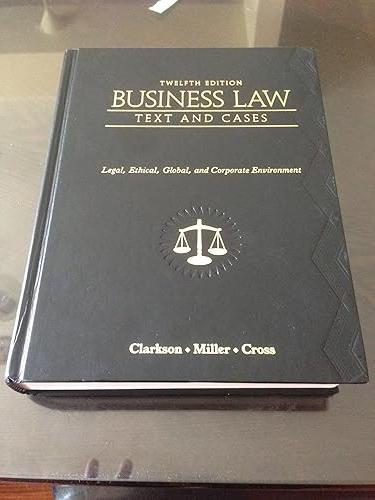Peggy Hamilton was a major shareholder in Carbon Processing and Reclamation (CPR), LLC. After a dispute, she
Question:
Peggy Hamilton was a major shareholder in Carbon Processing and Reclamation (CPR), LLC. After a dispute, she sold her interest in the company and signed a confidentiality agreement not to divulge company business to anyone. A year later, when William Jones, the owner of CPR, left on a trip, he let an employee, Jesse Edwards, drive his company car. There were boxes containing some detailed company records in the car. Edwards and his wife, Channon, were in the middle of a divorce, and she suspected him of hiding financial information from her. When Channon saw the boxes in the car her husband was driving, she got a car key from Hamilton, who still had one from when she was an owner. Channon used the key to get into the boxes of company information. Jones then sued Hamilton for breach of the confidentiality agreement, contending that allowing Channon to have access to the fi les was assisting in the theft of trade secrets. The trial court dismissed the claim, but Jones appealed. Could Hamilton’s actions be the basis for a claim of trade secret violation?
What factors should be taken into consideration? [Jones v. Hamilton, ___ So.3d ___ (Ala.Civ.App. 2010)]
Step by Step Answer:

Business Law Text And Cases Legal Ethical Global And Corporate Environment
ISBN: 9780538470827
12th Edition
Authors: Kenneth W. Clarkson, Roger LeRoy Miller, Frank B. Cross





